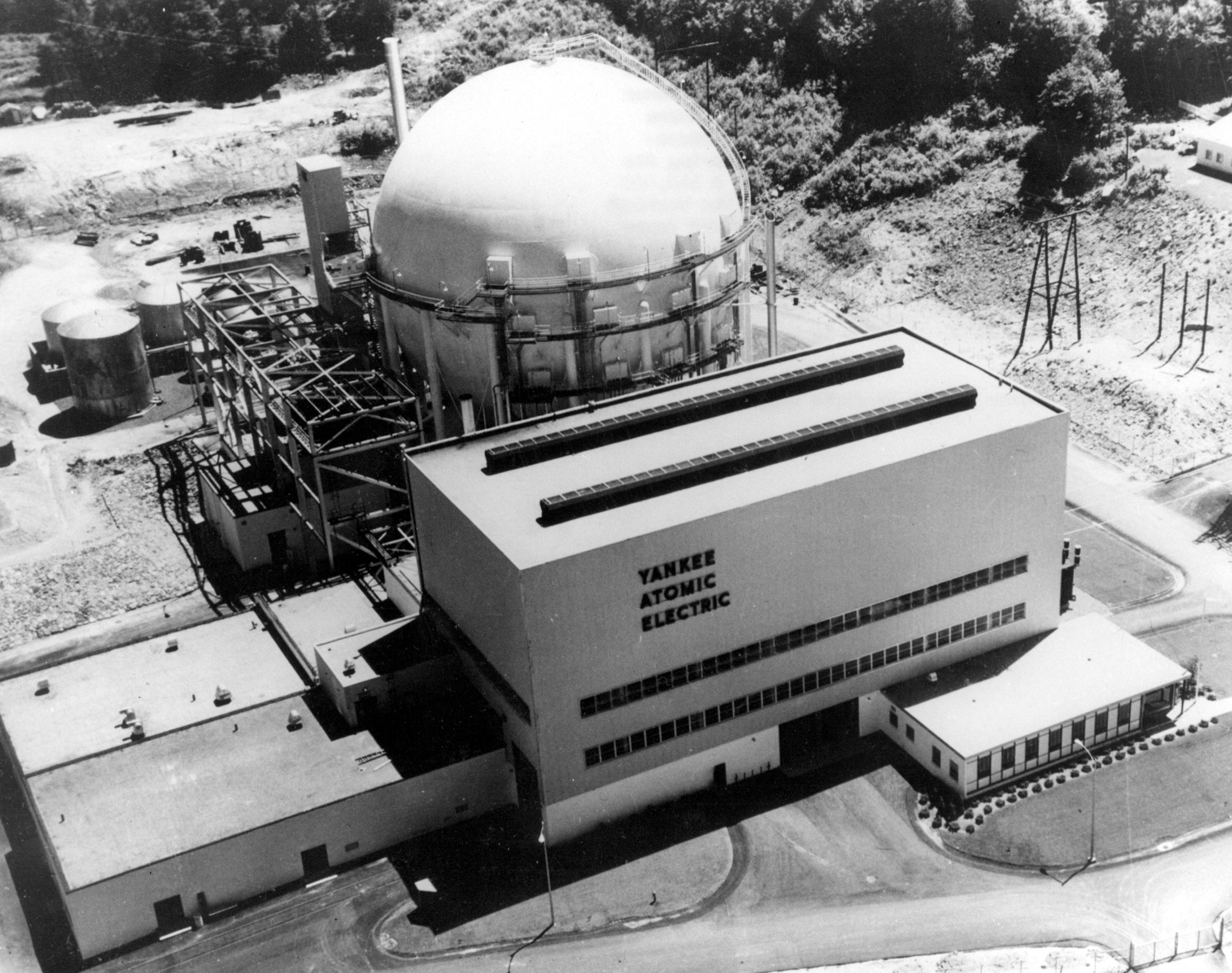The Yankee Rowe Nuclear Power Station is located on the Deerfield River in the town of Rowe, Massachusetts. The plant operated from 1960 to 1992 and was shut down permanently in February 29 of 1992. The plant was demolished and decommissioned in 2007. There are still twenty seven tons of high-level radioactive waste in the form of spent nuclear fuel in twelve dry casks at the site which require twenty four hour security.
The economies of the communities around the plant used to benefit from the operating plant but that ended in 1992. However, the communities are still affected by the presence of the nuclear waste in the casks on the site.
A U.S. Representative and a state senator recently toured the site in support of legislation being introduced in Congress to compensate local communities which have to host nuclear waste. The "Interim Spent Nuclear Fuel Storage Compensation Act" would authorize up to one hundred million dollars for 13 towns spread from Illinois to Maine.
"The federal government is obligated to provide mitigation costs to communities such as Rowe, considering that the Department of Energy failed to remove the waste as promised," said the state senator who is a Democrat.
The Nuclear Waste Act of 1982 mandated that a permanent national geological repository for spent nuclear fuel be operational by 1999. The project schedule slipped for the Yucca Mountain Repository in Nevada and, in 2011, the project was cancelled. Now it appears that there will not be any national repository until 2050 at the earliest. This leaves tons of spent nuclear fuel piling up in the cooling pools of reactors all over the country. The only current choice to relieve the crowding in the fuel pools is dry cask storage on site or at temporary remote facilities.
Nuclear plant operators were required to pay into a fund to finance a national repository which was suppose to open by 1999. Some of these plant operators are successfully suing the U.S. government for return of the funds that they paid. Unfortunately, the fund which reached thirty two billion dollars cannot be used for dry cast storage which is the only choice at present.
The town of Rowe has less than four hundred residents. When the Yankee Rowe plant was operational, the company that operated the plant paid for the town's police, fire and emergency response budgets as well as significant property taxes. The cost of public services now falls on the town's taxpayers.
Now the company which pays millions of dollars for security of the nuclear waste stored at the site of the old plant agrees that something should be done to help the town bear its share of the costs associated with the waste. One solution might be a national temporary spent fuel storage facility such as the one proposed by Waste Control Specialists to take four hundred thousand tons of spent fuel waste in west Texas. Something must be done soon because two thousand tons of spent nuclear fuel waste are being created every year in the United States.
Yankee Rowe Nuclear Power Station:
